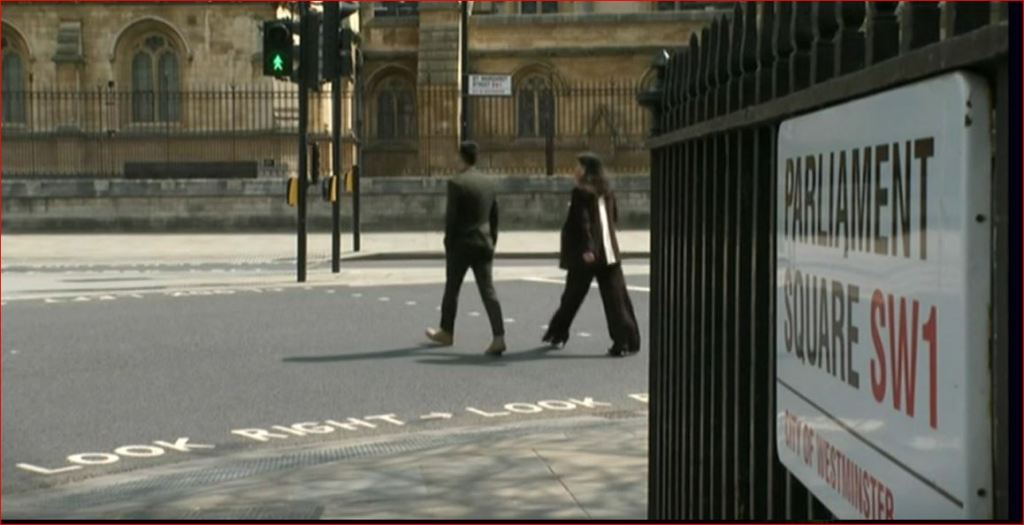
Among the systemic reasons for around £40bn of IT-related failures may be truth decay, excessive secrecy, no consequences for getting it wrong and the misleading of Parliament – a decades-old “conceal-and-deny” approach.
A public inquiry into the Post Office IT scandal, chaired by a much-respected judge Sir Wyn Williams, is looking at the Horizon system as supplied by Fujitsu. But what of the Whitehall culture that made a cover-up of Horizon’s faults possible, a culture that makes central government, with some impressive exceptions, a dysfunctional buyer of large-scale IT systems?
By Tony Collins
Part 3 – The Whitehall Bubble
Libra and ICL [Fujitsu]
The Libra project to computerise magistrates’ courts got off to a bad start when ICL [later rebranded Fujitsu] was the only bidder. Its bid price of £146m increased to £184m by the time the contract was signed seven months later. In the following year, 1999, ICL [which was by then starting to roll out its Horizon system to thousands of post offices], sought to renegotiate the Libra contract because its cash flow forecasts showed a £39m deficit over the life of the deal.
ICL said that it would be unable to continue with Libra if this gap in its finances could not be closed. It wanted the negotiations to be concluded by 21 March 2000 as it would otherwise have had to declare a loss in its 1999–2000 accounts. It needed to make a decision on whether to walk away by that date.
Whitehall officials and ICL agreed a revised contract for £319m over 14.5 years which included more PCs and printers. But ICL brought in a new management team that re-evaluated the plan and found it was not deliverable. ICL told the Department – a predecessor of the Ministry of Justice – that its forecast losses were now so high that it could not continue with the project unless the contract was substantially renegotiated.
This was the second time ICL wanted the contract renegotiated.
The supplier was in breach of the contract for failing to meet the delivery date for core software at the first courts site. But officials decided to negotiate with ICL rather than terminate the contract and sue for damages. Suing ICL appears never to have been a serious option given that civil service decision-makers had not been on hand when needed and there had been a lack of clarity at the start of the contract about exactly what the magistrates’ courts wanted. Suing was also not possible because Whitehall considered the systems too important to allow ICL to default.
In any case, Whitehall’s leaders would not let senior civil servants go into a witness box in an open courtroom where they might reveal how dysfunctional Whitehall departments could be, especially in the commissioning of large-scale IT-based systems.
One common result of the state’s dysfunctional IT buying big problem was that suppliers and buyers usually discovered only after contracts were signed that the project as configured was doomed.
Walk away?
ICL told officials that its maximum potential loss on the project was £200m and that it would repudiate the contract unless the Department negotiated to cover the loss.
At one point, senior managers from ICL made it clear to project officials that deadlines were being dictated by their parent company, Fujitsu, in Japan.
Next, the Department and ICL signed a legally binding Memorandum of Understanding, which placed Whitehall officials in a less favourable position than they would have been if they had simply continued with the existing contractual arrangements and relied on existing contractual rights.
In the end, the Department signed a revised contract with ICL (by then known as Fujitsu Services) for £232m over 8.5 years to supply mainly PCs, printers and networks – but not the much more tricky software to handle magistrates’ cases. The software had been the main reason for buying the system.
Whitehall officials had to buy the case-handling software separately. This meant the total costs of Libra soared to £390m, up from the initial bid price of £146m. The Public Accounts Committee branded Libra as “one of the worst IT projects ever seen”.
That ICL had threatened to walk away from the contract and had twice sought to renegotiate it were state secrets until the National Audit Office produced an impressively-detailed report in 2003.
But the National Audit Office’s investigation came about because MPs on the House of Commons’ Public Accounts Committee persuaded the NAO to investigate. Had Computer Weekly not been publishing articles on Libra there might never have been an NAO report on the project.
There are indeed no checks and balances within the Whitehall system to ensure that all major IT-related project failures are independently investigated or that Parliament is given a truthful picture when big programmes begin to fail.
Misleading Parliament by omission – the norm on major failing state IT-based projects
Parliament was given the impression all was well with Libra when the scheme was, in fact, at its lowest point. Parliamentary replies to MPs’ questions misled not by lies but by omitting inconvenient truths.
In November 2021, Conservative MP John Berkow, then in opposition, asked the Lord Chancellor’s Department for that year’s costs of Libra.
The government minister’s reply gave not a hint that ICL (then wholly owned by Fujitsu) was in breach of contract, threatening to repudiate the contract because of potential losses of £200m and the total estimated costs at that time had soared from the initial £146m to £319m. This was the reply ….
“The estimated costs of the Libra project in 2001–02 amount to £26.5 million. This is made up of internal costs, payments to ICL for the rollout of the first phase of the project and payments by the Magistrates Courts Service for the ongoing usage of Libra.”
That was the end of his reply. And not a hint that, at that time, new case-handling software for the courts had been delayed indefinitely.
Separately the Lord Chancellor and Chief Secretary to the Treasury published a combined report in 2001 that included Libra as one of their “achievements” of the past year.
Inconvenient truths were nowhere in sight. The report made no mention of Libra delays, major cost overruns or the supplier’s breach of contract and uncertainty over whether case management software would ever be rolled out successfully.
Instead, the report contained a foreword by then Lord Chancellor which used the future tense when referring to Libra. [It’s commonplace when things go wrong on major IT-related projects that Whitehall reports on what will be achieved, which avoids explaining the failures to date – a variation on the “conceal-and-deny” theme.]
The Whitehall report on Libra said,
“The Libra project will provide computer systems and equipment to around 500 magistrates’ courts in England and Wales. It will offer standard office automation throughout the magistrates’ courts and dedicated IT support for key business processes. The major benefits it will bring are:
– linking with other criminal justice organisations to speed the flow of information (joined-up service delivery);
– enabling police and other prosecuting authorities to provide summons information electronically;
– the provision of hearing information and key case information on a secure website for other criminal justice agencies and solicitors to access;
– a nationwide network infrastructure with external e-mail for all staff;
– courtroom computing – providing online access during hearings;
– a data warehouse for policy evaluation and performance information;
– potential for the future – the national infrastructure and central database provide the platform for re-examining business process and electronic service delivery.”
Watchdogs with few teeth
Nick Davies, Programme Director at the Institute for Government, told LBC this month of weaknesses in checks and balances on the award of major state contracts. He said that watchdogs have limited power and not many teeth. He said,
“The problem in so many of these cases is that government is effectively marking its own homework.”
He said that if watchdogs find something wrong they have to rely on government “to do the right thing”. But he added that “too often many governments but particularly this one” have shown that they do not think rules apply to them.
He also suggested that open government remains as elusive as ever. He said,
“Generally when it comes to government spending and transparency … this government has taken backward steps.”
He said that fewer freedom of information requests are being answered satisfactorily and government has failed to publish contract awards “months and months into the pandemic when the initial rush was over … when they were actually required to do so”.
Libra and other similarly-flawed government IT-based programmes suggest a structural failure of checks and balances in Whitehall. Although the National Audit Office and the Public Accounts Committee publish reports on some IT-based project failures, departments need pay no attention to any lessons when they come to buy new large-scale IT systems.
In 2017, the Commons’ Public Administration and Constitutional Affairs Committee said [Lessons still to be learned from Chilcott inquiry] that
“… our system currently lacks ‘a statutory or a convention-based enforcement system to ensure compliance with proper standards and accepted rules of how government should be conducted’.”
The National Audit Office has also expressed concerns about Whitehall’s conflicts of interest in reporting impartially to Parliament in its report “Accountability for Taxpayers’ money”.”
https://www.nao.org.uk/wp-content/uploads/2016/02/Accountability-for-Taxpayers-money.pdf.
There is indeed nothing to stop governments continuing to commission flawed IT-based projects and giving falsely-reassuring statements to Parliament on their progress.
It means that the state, as a dysfunctional buyer of large-scale IT over decades, remains under no pressure to change.
Smart Meters – a failing £11bn programme or another Whitehall “success”?
The Department for Business, Energy and Industrial Strategy continues to issue reassuring statements on the roll-out of smart meters. One of its latest statements, in 2022, is this,
“Smart meter technology is designed to accommodate the evolution of communication services over time, meaning people’s original smart meters can remain connected.”
That may be the intention but is it a reality?
Many experts support the idea of smart meters in principle. But they say costs of the roll-out have soared and the technology – which does not work with 4G or 5G – has obsolescence built in. New “smart” meters work only on 2G or 3G which are to be phased out.
Nick Hunn, a technology specialist at WiFore Wireless Consulting, last month told the Financial Mail on Sunday,
“Many billions more will now have to be spent replacing smart meters.”
Alex Henney, a former Government adviser on energy said,
“What is being provided is obsolete equipment at a ludicrously high cost. This troubled roll-out of smart meters is nothing but a total waste of taxpayers’ money.
“The Government does not seem to have given any thought about forcing smart meters on to us without realising they will become obsolete when the mobile signals change.”
But the Department for Business, Energy and Industrial Strategy, which is in charge of the smart meters roll-out, continues to publish statements that give no hint of any serious problems. The Department says on the GOV.UK website that the rollout is,
“… modernising the energy system and transforming the consumer experience by replacing traditional meters with smart meters. It is delivering accurate billing, advancing competition in energy provision, enabling faster and easier switching, and improving customer service and information.”
The Department describes the roll-out of smart meters as “successful”. It says the roll-out involves £13bn of private energy sector investment (which is to be recouped from consumers), delivers benefits of £19bn (which are unproven), and supports 15,000 jobs.
Inconvenient truths
The National Audit Office, in a report on smart meters, urged the Department for Business, Energy and Industrial Strategy, to
“make sure the team culture does not become defensive, and resistant to inconvenient truths”.
In 2018, the National Audit Office reported that 70% of the original “SMETS 1” smart meters did not work when householders switched suppliers. It said,
“The facts are that the programme is late, the costs are escalating, and in 2017 the cost of installing smart meters was 50% higher than the Department assumed…
“The full functionality of the system is also dependent on the development of technology that is not yet developed.”
The NAO also said,
“ … it is currently uncertain whether the industry cost savings forecast by the Department will materialise.”
But the Department for BEIS is entitled to reject anything said by the National Audit Office in its value-for-money reports. Indeed, from BEIS’s viewpoint, it may be better support its ministers by continuing to be defensive and resistant to inconvenient truths than being candid about the roll-out’s problems which could lead to political embarrassment.
It was left to Rachel Reeves MP, then head of the Business, Energy and Industrial Strategy Select Committee, to tell it like it is. She said,
“The smart meter rollout has been beset by problems and delays… yet, from our evidence hearing and the subsequent Ministerial correspondence, the Government’s tendency is to sugar-coat and pretend that everything will turn out alright in the end.”
Her comment about “sugar-coat” could apply to almost every government statement on a major IT-based programme in the past 43 years.
But the absence of any compulsion to tell the truth about the state’s biggest IT-based projects could explain why Whitehall has found it easy to normalise a “conceal-and-deny” approach to its most egregious blunders.
Part 4 – Pathway and Horizon – to follow
**
Moving witness statements to Post Office Horizon inquiry – transcripts and video:
Day 1 – 14 February 2022
Day 2 – 15 February 2022
33 former staff died before getting justice in Post Office IT scandal – Daily Mail’s front page – 14 Feb 2022
The Great Post Office Scandal – by Nick Wallis
43 years of state IT disasters – and they’re still happening– Part 1
43 years of state IT disasters – Part 2







Thank you so much, Tony.
I hope to read this essay when I have the time it deserves.
However, I glanced through and noted the absence of “checks and balances” – in this instance, for Whitehall IT projects. What a disaster!
The concept and practice of checks and balances gave us confidence that our civilization, on the whole, cherished truth, fairness, efficient systems and, thus, respect for us.
Increasingly, it seems we now host a regime in which “checks and balances” are viewed as a possible challenge to the dominant narrative – and that will never be tolerated.
Wishing you well.
LikeLike
Thank you Zara
LikeLike